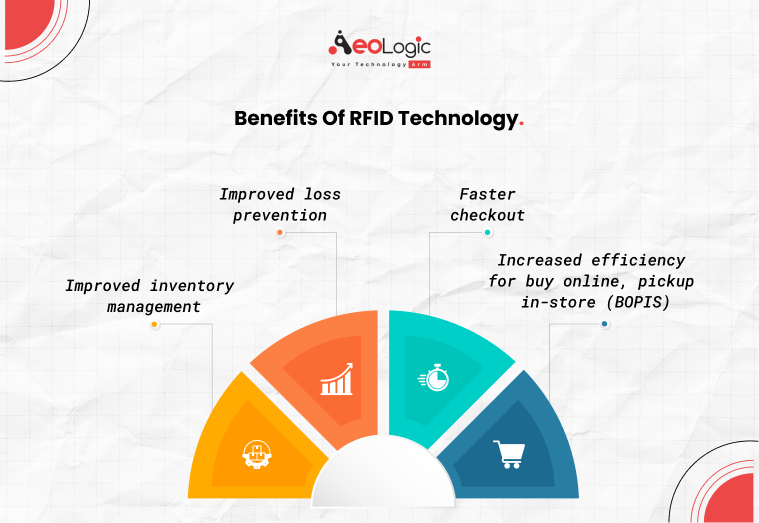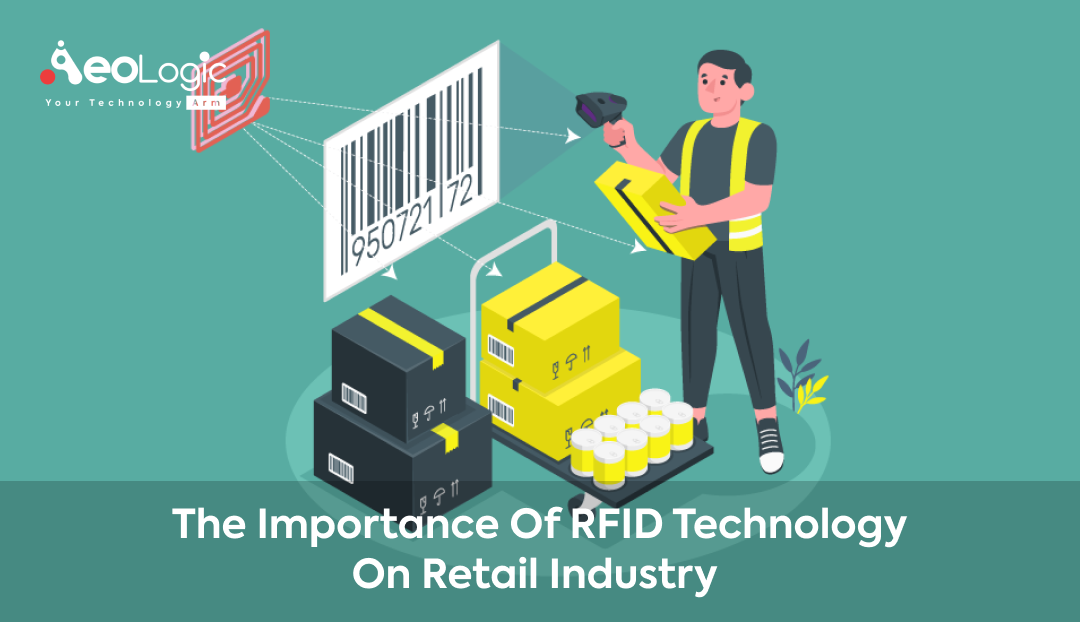The importance of RFID technology in the retail sector brings with it numerous advantages for companies, no matter their size. Tagging garments or items used in manufacturing helps to have total control of all particulars, identify them and offer full traceability and translucency to the client. More and more companies in the retail sector are directing their business model towards new practices to offer higher satisfaction and add value to the client offering further information about the product the purchase.
Also read: Revolutionizing Inventory Management with RFID in Retail
The Importance of RFID Tags and Their Use in the Retail Sector
RFID tags have a large number of data and information that can be read with RFID devices like the ones we offer at Aeologic Technologies.
Nonetheless, tagging is veritably important and beneficial in the retail sector.
Reduce Inventory Time and Logistics Operations
Compared to barcodes, RFID tags have two main advantages.
Particulars tagged using RFID technology can be linked automatically, without the need for contact reading, and in large volume, while particulars bearing the traditional barcode must be linked by surveying one by one.
RFID tags are more dependable than barcodes because they insure a 100 percent real position within the supply chain, both in the storehouse and during the logistics process.
Stock Provisioning
With the importance of RFID in retail, we gain trustability in the count of products that we’ve available in the storehouse or store, avoiding stock breakages. RFID tags and cloud platforms, allow full integration of ecommerce with the physical store.
Add Value to the Client
The advantages of using RFID aren’t only for the company due to cost reduction and time savings in routine processes, they’re also for the client, who’ll ameliorate their shopping experience and general satisfaction with your service and the purchase process that you offer. Customers value much, and more and more, all the information that can be offered to them about the products they’re buying. All that information can be contained in the RFID tag.
However, they will consult all the information about the product through a web page, if your customers read the QR code on the RFID label. They can consult the entire product process, with data of origin, composition, care instructions and ways to promote the circularity of the product.
Shipping Errors or Losses
RFID tags allow full product traceability and this has an impact on trustability for the company and the customers. RFID reduces supplier errors, clerical crimes and theft by in fact, more than 50 percent, both internally and externally.
Our cloud platform has a specific module for ecommerce that allows to corroborate that the shipments are correct, without generating an incorrect order, with the corresponding logistics and human costs that it would generate for the company.
Sales Increase
RFID is a technology that’s able of conforming through customizations to each supply chain, carrying the appropriate results for each customer, reducing labor costs and generating trustability that results in increased sales.
Industrial Automation in the Retail Sector
You will wonder how the automatic reading of the products is carried out. Staff install the RFID label on each item and once the particulars are linked they can be read with different RFID devices and solutions.

RFID tunnel- It allows to read and identify a large number of tags in logistics processes.
RFID portal- Designed for identification and control in specific areas for example, doors, loading docks, and movements within the storehouse.
RFID desktop device- Its function is to identify the particulars that are in bags and boxes.
RFID handheld device- effective and agile tool for managing stock in the store and warehouse.
Point of sale device- It makes it possible to speed up the time of trade, reducing staying times by relating the particulars to be paid for.
Also read: 10 Technologies Leading Digital Transformation In Retail
Integrating RFID into Your Retail Store
The retail assiduity is still in the early days of mass RFID relinquishment. Granted, the cost of enforcing RFID technology is a concern for some retailers. Yet with the lower hedge of installation and the rising impact of buyers expectations, acceptance is unavoidable in the coming times. Still, start small, if you are doubtful. Use RFID tags to detect stock in your stockroom or warehouse. Dissect your peak shopping times for each store.
And if you really want to push the boat out, create a virtual mirror that scans RFID tags and overlays what the product would look like on a buyer. Remember, Technology is not something to be scared of. When humans and RFID technology work together, business owners can save time, come more productive, and save money.
Get in touch with us to know more about retail businesses and technology adoption into it.







